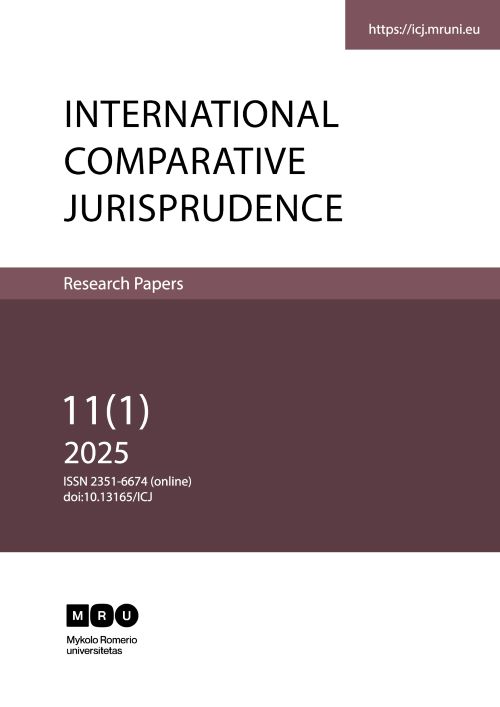CONCLUSIVE AND NON-CONCLUSIVE JUDGEMENTS: A COMPARATIVE STUDY OF JURISPRUDENCE AND LAW IN THE FIQH AND SECULAR LEGAL SYSTEMS
plugins.themes.bootstrap3.article.main6991d83f57ab3
Santrauka
In this work, we compare conclusive and non-conclusive judgements in the Fiqh and secular legal systems. The research focuses on the processes of these legal systems that are used to define, enforce and explain judgements that are considered to be conclusive (final) or non-conclusive (provisional). This paper is specifically concerned with the analytical continuum of these judgements and related stereotyped procedures in each system, with the Jordanian legal framework used as an example, as it is based on both Islamic and secular laws. Thus, by methodically comparing Islamic and secular legal systems, we highlight that although both recognise legal finality, the former draws upon Shariah as the decisive source of legal authority and the latter on procedural admissibility. We demonstrate that, in both systems, non-conclusive judgements operate as intermediate or partial solutions, although they are based on divergent ethical and procedural rules. Our findings can enhance the understanding of these legal differences, especially in the global and multicultural legal environments in which both systems operate.
Keywords: Conclusive Judgements, Non-Conclusive Judgements, Islamic Jurisprudence, Comparative Law, Jordanian Legal System.







